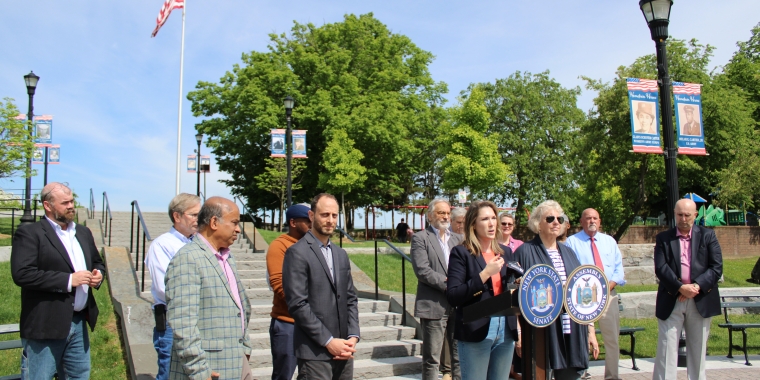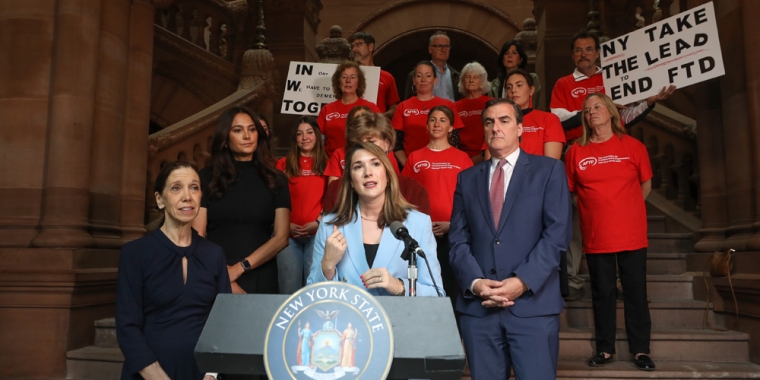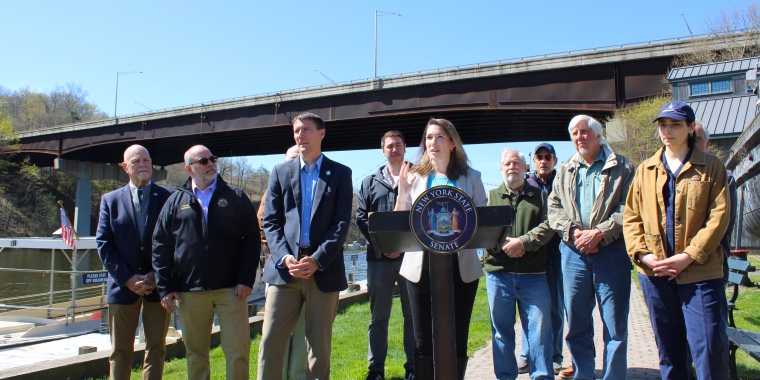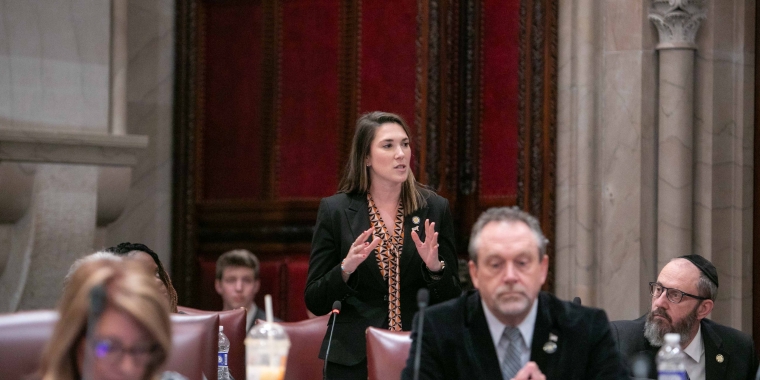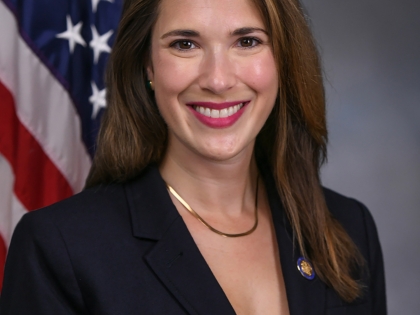
Senator Michelle Hinchey Recognizes Frontotemporal Degeneration Awareness Week, Announces Virtual Information Session with The Association for Frontotemporal Degeneration
September 27, 2021

ALBANY, NY – This week, Senator Michelle Hinchey (SD-46) will shine a light on the complex brain disease known as frontotemporal degeneration (FTD), the most common form of dementia for people under the age of 60. A resolution sponsored by Hinchey (J.902), which was adopted by the State Senate during the 2021 session, designates September 26 to October 3, 2021, as Frontotemporal Degeneration Awareness Week in the State of New York, marking the first time in state history that FTD has received formal recognition by the Legislature. To educate the public about FTD and share resources that may be helpful for families affected, Hinchey will host a virtual information session via Facebook Live on Friday, October 1, at 11:00 a.m. in partnership with The Association for Frontotemporal Degeneration (AFTD).
Senator Hinchey’s father, the late U.S. Congressman Maurice D. Hinchey, passed away on November 22, 2017, from primary progressive aphasia (PPA), a form of FTD. As a leading advocate on FTD in the State Senate, Hinchey is committed to closing the care and awareness gaps on the neurological disorder, which affects an estimated 60,000 people in the United States.
FTD is a group of incurable brain disorders characterized by the loss of nerve cells in the frontal and temporal lobes of the brain, which can impair a person’s speech, personality, behavior, and motor skills. FTD represents an estimated 5-15% of all dementia cases and is often misdiagnosed as a psychiatric problem due to the wide range of cognitive and behavioral symptoms and their young onset. Symptoms typically start between the ages of 40 and 65, beginning gradually and progressing steadily — in some cases, rapidly. The length of progression varies from 2 to over 20 years and can render people, who are at the prime of their life, unable to function. In the medical community, understanding of FTD is still evolving, and currently, no treatments are available to cure or slow the progression of the disease.
“The fight to bring frontotemporal degeneration (FTD) to the forefront of public awareness and to our policy discussions in the State Legislature is a personal one for me. Anyone who has had to watch a family member suffer through this degenerative brain disease understands the heartbreak, the frustration of misdiagnosis, the challenge of finding affordable long-term care, and the need for quality informational resources to help prepare for every stage of the disease,” said Senator Michelle Hinchey.
“I’m proud to sponsor the Senate’s first-ever resolution designating September 26 to October 3, 2021, as Frontotemporal Degeneration Awareness Week in New York — a long-overdue recognition that will finally focus attention on this devastating and little-talked about illness. We need increased awareness to help people and their families understand what they’re up against and to encourage a stronger understanding of FTD in our medical community. When my father was diagnosed, The Association for Frontotemporal Degeneration (AFTD) was an incredibly valuable resource for my family, and I want to make their work known to anyone who might be struggling to navigate a loved one’s battle with the disease. I invite all New Yorkers to join us this Friday for a virtual information session to learn more about FTD and the guidance available — straight from the experts," said Hinchey.
“AFTD is proud to join Senator Hinchey in bringing awareness of the complex and devastating challenges brought on by FTD,” said Matt Sharp, Advocacy Manager for The Association for Frontotemporal Degeneration (AFTD). “Your work tells people facing FTD in New York State that they aren’t alone and builds hope for a future free of this disease.”
Closing the FTD care gap in upstate and rural New York remains a top priority for Hinchey who secured $500,000 during the 2021-2022 State Budget process for Valley Health Services, Inc. (VHS), a subsidiary of the Bassett Healthcare Network, to help fund the construction of a state-of-the-art nursing facility that will offer services for patients with dementia-related needs. The 160-bed skilled nursing facility is on track to become the only provider of comprehensive neurobehavioral care in the Mohawk Valley and Capital Region and will include two 20-bed units dedicated to neurobehavioral and memory care.
###
Share this Article or Press Release
Newsroom
Go to Newsroom